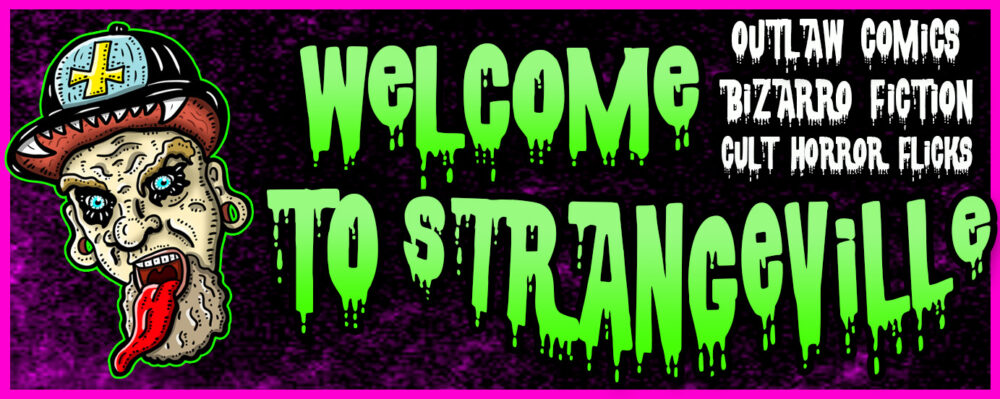 Writing believable characters in fiction can be difficult. It’s very easy to fall back on reliable, yet generic tropes such as the mysterious stranger wandering into town, the scorned lover, or, god forbid, the writer with inner demons. Regardless of who you choose your characters to be, you have to make them believable. Personally, while I’ve written more scorned lover and mysterious stranger stories than I care to admit, I’ve never written a story from the perspective of the latter. Writers are writers, they’re passive, they’re observers by nature. They’re more likely to be the nosey neighbor watching the events of your story unfold than a participant.
Writing believable characters in fiction can be difficult. It’s very easy to fall back on reliable, yet generic tropes such as the mysterious stranger wandering into town, the scorned lover, or, god forbid, the writer with inner demons. Regardless of who you choose your characters to be, you have to make them believable. Personally, while I’ve written more scorned lover and mysterious stranger stories than I care to admit, I’ve never written a story from the perspective of the latter. Writers are writers, they’re passive, they’re observers by nature. They’re more likely to be the nosey neighbor watching the events of your story unfold than a participant.
I’m always skeptical about reading a fictional tale, especially a horror tale which follows a writer as its main character. Inevitably by the final act, the normally sedentary and meek writer becomes Rambo, defending his family or himself from demons or monsters from mind-shattering dimensions while leaping fire pits and jogging down dark alleys. I’m sorry, but most of us writer types just aren’t that fit.
This month, as I embarked on a journey to participate in #NaNoWriMo, I decided it was about time I wrote a story about a writer. Only my writer would be a sentient praying mantis English professor struggling to complete his first novel in a post apocalyptic world where genetically modified mantises have wiped out humanity and taken their place as the dominant life form on planet Earth.
Believe it or not, the weirdest thing about this story is that Matthew the mantis (yes I’m an adult. Yes this story is written for adults, thank you very much.) simply refused to become an English teacher, and was far too busy to even thinking about writing a novel. You see, I know what’s going to happen to poor Matthew as the novel progresses. I know that he doesn’t want to be eaten by his wife when they mate. I know that this will be a major point of contention in Matthew’s journey. The main conflict even.
So Matthew wants to be a history professor, and he wants to be an instrumental figure in a political group vying for humane reproductive rights for male mantises who are in very real danger of being decapitated when they have sex. The history professor part is so that Matty the mantis can be passionate about creating a more civilized society than the one the humans left them. He needs to know well the history of the Great Awakening as the event that caused mantises to grow to human size and gain sentience is referred to.

Sure, I could have forced Matthew to become a writer, but his character would have been less believable when it came to his vehement protest over being eaten during matting, which is, after all, a perfectly normal and healthy function of mantis sex, as the male produces more sperm in his death throes, creating better odds that his offspring will continue his lineage. A character’s motivations are just as important as their back story, voice, or physical characteristics. Moreso, I’d say, as your character’s motivations will be directly at odds with the conflict you present them with. The rest of it is interchangeable window dressing.
Being flexible with your character’s traits, your plot, your ending, these are all crucial to preventing you from writing yourself into a corner later on down the road, once you’ve hit maybe 30,000 words and it just feels like the book isn’t working, or that your drama is falling flat. No matter how much meticulous outlining you’ve done, you have got to let your characters choose their own direction in your story. Some characters are doomed from the get go. A sacrifice to push your protagonist past some mental block at the end of the first act. Only once you get near their death scene, that secondary character starts making a very real and valid argument to stay the course and at least make it half way through your second act.
If there’s purpose there, if suddenly that character’s job isn’t done, let em live. See what they have to say. After all, it’s made up shit. If it doesn’t work, rewind the tape. Add back in that deleted scene, and rip their pecker off with a pair of giant oysters. Do whatever the fuck you want. It’s your book.
Just remember, whether you’re writing on a laptop, a typewriter, or a pen and pad, your story must always remain fluid and dynamic, allowing the characters to breathe and act on their own. Never be afraid to jump through a quantum portal into an alternate dimension beyond the outline you believe is written in stone. If you’re allowing your characters to make their own decisions, you’ll likely find that they’ll jump around through multiple attempts at outlining them. The more anal retentive among us will find this idea revolting, but I believe it is the single most fun part about writing fiction. That moment when your characters and their actions surprise even you, forcing you to work harder to outsmart them, trying desperately to keep them on track, until you realize that they’ve written their very own ending, and you were the first person to see the show. That’s magic. That’s writing. That’s why we do this.

